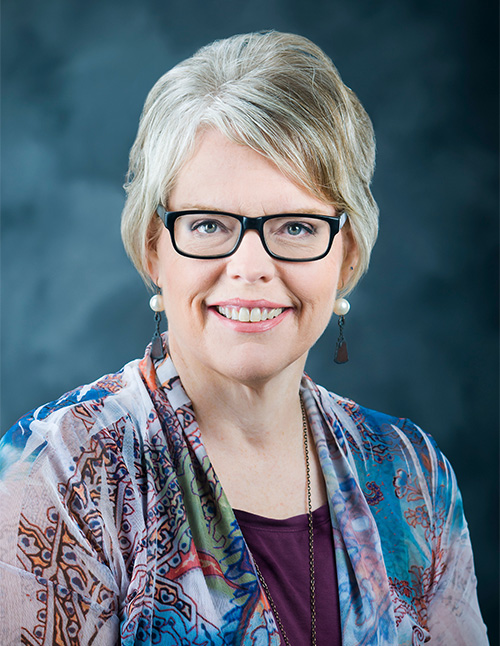
Any teacher’s first year—in a new classroom, a new school or a new district— can cause butterflies. Those little ripples of anxiety might even feel insurmountable for a fresh college graduate making the transition from classroom learner to classroom leader. Still, Katie Hogan said she is confident.
“Although I think I will be more nervous than the students, it will be a dream come true,” Hogan said. “I’ve always wanted to be an educator, and I will have completed four years of hard work in order to lead and teach students so the first day of class will be a significant milestone in my career.”
A senior majoring in secondary education, Hogan said she would like to teach 8th or 9th grade and believes she will be ready to step into that role and do it well thanks to her preparation at Mississippi State University.
“MSU, I feel, has well equipped me to be an educator by hiring some of the best professors to teach the education students,” the Olive Branch native explained. “They keep it real and are great at letting their students know that being an educator is hard work but it’s worth it.”
Coming from a family of educators, Hogan knows that she’s stepping into an important role, not just that of a teacher but also a mentor and a role model. She said she also understands that teaching is a calling.
“I decided to become a teacher because I grew up seeing firsthand the effects teachers can have on students years and years down the road,” Hogan said. “Teaching also combines my love of leadership, community, relationships and students.”
Mississippi schools, in particular, have struggled to find people to “answer the call,” causing a statewide teacher shortage in some areas for the past three decades. Before the 2020-21 academic year started, the Mississippi Department of Education reported critical teaching shortages in 89 of the 151 school districts in the state.
More Preparation
Richard Blackbourn, dean of the College of Education, said Mississippi State is helping address this issue by ensuring its graduates know what to expect their first day as teachers, including how to balance the needs of every student in the room.
“We’ve found that so many first-year teachers struggle with student discipline and differentiated instruction,” Blackbourn explained. “We strive to ensure that our graduates walk into their classrooms that first day as teachers fully prepared for whatever the year might throw at them.”
Blackbourn added that feedback from those who employ MSU teacher interns and graduates helps hone the curriculum of the program. It was from that feedback that Donna Shea, director of clinical and field-based instruction, realized teacher candidates would greatly benefit from additional guidance in classroom management, establishing relationships with students and parents, and communicating effectively with parents.
Shea said she knows from her own career as an educator how much relationships matter, and for the past 18 semesters as she’s guided future teachers through their final months at her alma mater, it’s a lesson she’s tried to instill in them.
“Teachers have the awesome opportunity to be on the front lines every day in being that light, in loving every student, and in inspiring positive change one child at a time,” Shea said.
To help teacher candidates grow in this area of establishing proper classroom relationships, the College of Education reached out to classroom management guru Amie Dean to host classroom management seminars for senior education majors.
“We’ve had such great feedback from students about our seminars,” Shea explained. “Teacher candidates have said that information from the seminars inspired them to go out into the world and make a difference in the lives of their students.”
The college has also invited local school administrators and Mississippi Department of Education staff to discuss with teacher candidates a variety of topics including principals’ expectations, a teacher’s role in state accreditation and educational interventions.
More Opportunities
For Hogan, who has attended the college’s seminars, all of her preparation has started to pay off. She’s already planning what her future classroom will look like and how it will function in the wake of the coronavirus pandemic. Not only have MSU faculty helped her every step of the way but during her time at the university, she also has benefited from being part of the Mississippi Excellence in Teaching Program—a scholarship that Hogan said changed her life.
The METP scholarship is a collaborative endeavor that aims to attract top-performing students to teacher education programs in Mississippi. The scholarship provides full tuition, including room, board and books, as well as professional incentives, a $1,000 technology stipend and a fully funded study-abroad or similar experience. All students who enter the program make a five-year commitment to teach in Mississippi after graduation.

“The METP scholarship has attracted students to Mississippi State University from across the United States,” said Teresa Jayroe, associate dean of the College of Education. “We just admitted a new class of 30 students for fall 2020 and have approximately 70 METP teachers in classrooms across the state. We are excited about the impact these high-achieving young teachers are already making in classrooms throughout Mississippi.”
Rebecca Robichaux-Davis, a professor who serves as adviser for elementary education METP students concentrating in mathematics, added, “When I speak to METP students about their career goals, the vast majority of them want to teach middle school mathematics and consequently, these students are directly bridging the gap in Mississippi’s teacher shortage in a critical needs area.”
Funded by the Robert M. Hearin Support Foundation in Jackson for approximately $100,000 over four years, METP is designed to create a unique “honors college-style” learning experience for high-achieving education majors. In addition to the METP scholarship, the MSU College of Education offers another 24 scholarships totaling approximately $98,000 specifically for future teachers.
Hogan said METP and MSU have pushed her college experience and career preparation the “extra mile.”
“The program has allowed me to build connections and friendships with potential future colleagues,” Hogan said. “It has also placed me in a community with current teachers that have been through the program, so I get to hear their stories and learn from their experiences.”
More Paths to a Degree
While Hogan benefits from on-campus instruction from MSU faculty, the College of Education also ensures its scholarships, mentorship and educational opportunities are available to non-traditional learners. The Master of Arts in teaching and Master of Arts in teaching special education are online programs geared toward those who choose teaching as a second career.
In addition, two programs administered through MSU-Meridian open degree possibilities for teacher assistants—the new Mississippi Teacher Residency program and Professional Advancement Network for Teacher Assistants initiative.
A first of its kind in the United States, the residency program is designed to help classroom assistant teachers complete a bachelor’s degree. The program will graduate approximately 100 new elementary teachers for four underserved central Mississippi school districts over the course of the four-year grant.
“The Mississippi Teacher Residency program provides students with the best of both worlds,” explained Brandi Sumrall, co-director of the program. “Students complete the program with a degree in elementary education and an endorsement in special education. As a special educator and as a teacher educator, I know the importance of having qualified teachers working with students with exceptional abilities.”
She went on to say the Mississippi Teacher Residency program allows her to work with elementary education majors to provide a knowledge base for working with students with disabilities and teaching students who are at-risk academically and behaviorally.
“The combination of both the elementary education degree and the special education endorsement makes graduates of the program highly marketable to school districts because of their certifications and their diverse abilities as teachers,” Sumrall said.
The program pairs with the Professional Advancement Network for Teacher Assistants initiative, which aims to help teacher assistants in the Meridian Public and Lauderdale County school districts complete the requirements to become licensed teachers. PANTA’s blended delivery format allows students to participate in either face-to-face or remote instruction, making it ideal for working adults.

“After watching school districts across the state struggle to place certified teachers in their classrooms, a group of Meridian professors realized that there was a pool of people who already had years of experience in the classroom and a likelihood of remaining in those communities that they served in as assistant teachers,” explained Jeff Leffler, MTR and PANTA program co-director. “This led to us creating the PANTA program that allowed us to make MSU-Meridian’s teacher education program more accessible to teacher assistants.”
As they began to see individuals successfully complete the program, Leffler and Sumrall became even more passionate about expanding that initiative to meet the needs across the state. Like most states, Mississippi has experienced a shortage of certified teachers that has become more acute in recent years. Added to that is a lack of diversity in certified teachers with over 75% of teachers nationally being white women.
“We wanted to be a part of a solution that created additional pathways to teacher certification while also preparing a more diverse population that more closely matches the student populations they will be teaching,” Leffler said.
Kim Hall, head of the Division of Education at MSU-Meridian, said that being able to offer initiatives like the Mississippi Teacher Residency and PANTA programs has allowed faculty to truly do what they love. She said she knows that’s making an impact in the community and the state.
“Our faculty are committed to helping teacher assistants and long-term substitutes reach their goal of having an even greater impact on PK-12 students by teaching full-time in their own classrooms,” Hall said. “We know these future teachers have a heart for children and for making a difference in the lives of their students, and we are thrilled to be able to help them pursue their dreams.”
More Open Doors
One side effect of the global pandemic has been a more widespread effort to get more teachers in the field. The MDE temporarily waived some requirements for students applying to enter MSU’s teacher education and administration preparation programs. It is also waiving some licensure exams for certification through Dec. 31, 2021.
“The waiving of the admission requirements by the Mississippi Department of Education has dramatically increased our applicant pool,” Blackbourn explained. “This fact is significant given the extreme shortage of teachers occurring in Mississippi. We are confident that those who complete our programs will have a significant and positive impact on education in the state.”
While these efforts can help get teachers into classrooms, keeping them there past the first year presents its own challenges—something MSU is helping overcome with its Teacher Leadership program. Designed to develop strong leadership qualities in experienced teachers, the Teacher Leadership program prepares participants for a variety of professional positions such as instructional coach, lead teacher, coordinator or director roles.
The concept of teacher leadership has been around for decades and has received increased national attention as a potential lever for not only improved instruction but also recruitment and retention of effective teachers. Teacher leadership takes on many different forms at different levels within a school system.
An assistant clinical professor for the Department of Educational Leadership, Leigh Ann McMullan explained that as a principal, she always tried to promote leadership opportunities for her teachers, but she found these opportunities were somewhat limited and often led teachers to positions outside the classroom. Now, in her new role as coordinator for MSU’s Teacher Leadership program, she has the opportunity to help teachers gain leadership opportunities without having to make that choice.
“When I came to MSU, one of my goals was to create additional graduate opportunities that provided incentives for our effective teachers to remain in the classroom,” McMullan said. “Our Teacher Leadership program empowers future teacher leaders to develop strong leadership skills while maintaining direct contact with students.”
She continued, “Ultimately, our goal is for highly effective educators to take on roles at the classroom, school, district, state or national levels in order to advance the profession, improve educator effectiveness and increase access to great teaching and learning for all students.”
Those opportunities piqued the interest of Ramona Underwood when she was looking at graduate programs. The veteran teacher and 2020 master’s graduate of the Teacher Leadership program said she knew she wanted to be a voice for teachers to administration while continuing her work in the classroom.
“A teacher leader is an intermediary between teachers and administration,” Underwood explained. “They promote mentorship among teachers and encourage growth in areas that ultimately increase student learning.”
The North Pike High School science teacher, who earned a bachelor’s from MSU in 1997, originally thought she was called to be in the medical field, but after seven years, she walked out of the lab and into the classroom and never looked back.
“Teaching is honestly my mission field. From the moment I stepped into the classroom, I quickly found myself feeling that I know why I’m here,” Underwood said. “I feel more fulfilled than I ever did in my previous position. I know my students learn so much in my classroom from a teacher who loves them unconditionally and without judgment.”
 After a professor suggested the Teacher Leadership program at MSU and put her in touch with the program coordinator, Underwood knew she’d found the right path.
After a professor suggested the Teacher Leadership program at MSU and put her in touch with the program coordinator, Underwood knew she’d found the right path.
“It checked all my boxes of wanting to learn leadership skills without going the administration route and it also exposes you to what is expected as you go through the national board process,” she said.
Eric Moyen, head of the Department of Educational Leadership, explained that courses for the teacher leadership concentration have been designed using National Board for Professional Teaching Standards’ ideals, so that Teacher Leader candidates are better prepared for national board certification.
“Board certification improves teacher retention, teaching effectiveness and teacher leadership while providing teachers with substantial financial incentives to remain in the classroom,” Moyen said. “We work closely with our World Class Teaching program to provide support for teacher leader candidates who are also seeking national board certification. It is a win-win for teachers looking to improve their pedagogy and schools looking to cultivate teaching excellence.”
Mississippi has a strong national board certification history that dates back to the late 1990s, thanks to MSU’s World Class Teaching program that aims to encourage and assist teachers who are interested in pursuing the credential. Michelle Stubbs, who directs the program, said MSU is committed to assisting national board candidates every step of the way and providing experienced mentors who offer direction and feedback.
“We believe that by establishing community among candidates, they tackle each part of the national board’s process with confidence and success,” Stubbs said, adding that national board certification, with its leadership opportunities and stipend rewards, plays a large part in teacher retention, especially in Mississippi.
Speaking from her own national board certification experience, Stubbs said that not only did her teaching practice improve but she also was able to connect with teachers from all over the United States.
“I encourage all Mississippi teachers to pursue national board certification,” Stubbs said. “In fact, research shows that students with a national board-certified teacher are more likely to achieve a proficient score.”
The Mississippi Department of Education supports teachers in the national board certification process by refunding the costs of certification once the teacher submits. It also provides a $6,000 stipend for five years to those who achieve certification.
“We are fortunate to have leaders that support national board certification,” Stubbs said. “There are not many states that provide the financial support that Mississippi provides.”
Currently, approximately 90% of national board candidates from MSU’s World Class Teaching Program have earned the certification. According to the National Board for Professional Teaching Standard’s website, Mississippi—with over 4,300 nationally certified teachers—ranks 7th in the nation.
Since its establishment in the MSU College of Education, there are now five additional World Class Teaching programs on university campuses throughout the state, all of which support new and veteran teachers.
“The future of Mississippi’s teachers appears to be in good hands at Mississippi State University,” Blackbourn said. “Our graduates are highly sought after and are well regarded by school districts throughout the state. Furthermore, the number of individuals entering our programs is increasing dramatically. I believe this is due to the quality of our faculty and the reputation of our programs.”
 Recruiting future teachers to Mississippi State
Recruiting future teachers to Mississippi State
Amy Prisock knows a thing or two about what it takes to be a teacher. After all, she used to be one. But now, instead of teaching the next generation, the College of Education’s recruitment coordinator is making sure the next generation of teachers gets the education it deserves.
Prisock routinely visits high schools and community colleges to show students just how rewarding a teaching career can be. Each year, one of her favorite places on the recruitment trail is the Congressman Bennie G. Thompson College and Career Fair in Greenville.
“I have a special place in my heart for the Delta,” Prisock said. “I can always find someone interested in talking about Mississippi State and the College of Education. Everyone has a favorite teacher who impacted their life.”
Scholarships are a huge part of Prisock’s recruitment. While she believes everyone who wants to go to college should, she knows not everyone who wants to go to college can afford it. She makes sure to always tell potential students about the scholarship opportunities at Mississippi State University, especially its 94 teacher education scholarships.
With so many schools in the area restricting campus visitors because of the pandemic, Prisock and her fellow recruiters have had to get creative in how they meet students. Taking these changes in stride, she has turned to social media, Webex and mailed out information packets to recruit future teachers. She also makes schools aware that she is ready to talk about the College of Education and its programs to their students, whether one-on-one or a virtual session for their whole class.
“Effective teachers will impact the lives of the students they teach every day. A student’s passion for teaching children is evident whether meeting virtually or face-to-face,” Prisock said. “That’s what I look for when recruiting, and those are the students I want to join our Bulldog family.”
By Camille Carskadon | Photos by Beth Wynn
